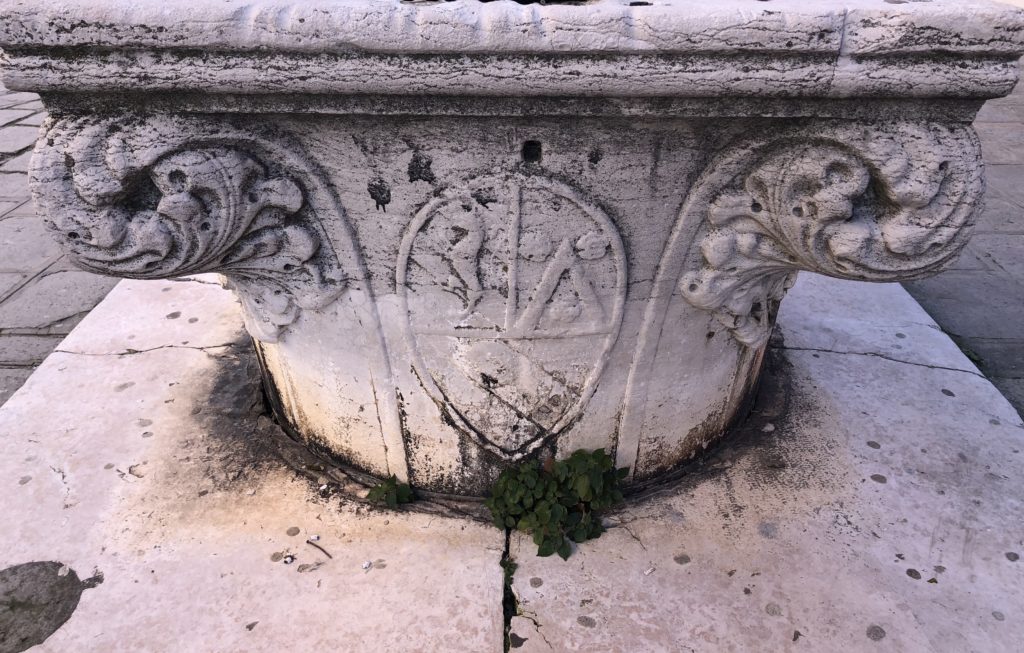The Aesthetic Citizen
Be an aesthetic citizen, at home or when you travel. How?
There is much evidence that beauty can have a transformative effect on humans for the benefit of the entire world. Irene Baldriga, art history Ph. D. and a docent at Università La Sapienza di Roma is the author of ‘Estetica della cittadinanza. Per una nuova educazione civica’, Le Monnier Università, 2020 – an inspiring book, whose title literally translates into ‘Citizenship Aesthetics. Towards New Civics’.
It’s about the power of beauty as a driver of change through the transformation of the self.
My job is actually to evoke beauty and bring to life stories of people that were able to conjugate aesthetics and functionality and make Venice into such a unique place and a myth of economic success. I strongly believe that a bespoke guided tour can become a life-changing experience

Aesthetic citizenship, what does this actually mean?
Being able to recognize beauty in all its forms, even when beauty does not surface at a first glance, can make everyone into a better citizen. Learning how to recognize beauty makes you develop a greater sense of appreciation for the arts and the environment, that is for beauty in the widest sense of the word.
As a consequence, when exposure to beauty becomes a necessity for you, the quality of your civic behavior will naturally change accordingly. Your posture, your way of looking and interacting, your listening skills, your sensitivity, and even your imagination won’t be the same as before any longer. They will be the expression of your new identity as an aesthetic citizen.
‘The aesthetic citizen fosters and practices the respect towards common goods and well-being: people, things, animals, natural and artificial environment.’
An aesthetic citizen is such even when away from home
Being an aesthetic citizen is a new experience of citizenship, and apply to any place inhabited by humans, even if only temporarily as it happens during a holiday away from home. An aesthetic citizen can really make this world into a better place, simply because he/she needs the world to be in his/her own image and likeness anywhere.
Irene Baldriga has outlined in ten statements her ‘Manifest of the Aesthetic Citizenship’, which I fully subscribe to. I invite everyone to read it and try to put it into practice.
(Towards a) Manifest of the Aesthetic Citizenship
- Citizenship aesthetics values the existing relation between knowledge of cultural heritage and quality of civic and relational behaviors.
- Citizenships aesthetics is manifested through posturing, participation, sensitivity, way of looking, listening skills, imagination.
- Landscape and cultural heritage are to be considered the expression of the identity of an aesthetic citizen.
- Education towards an aesthetic citizenship occurs through a conscious experience of cultural heritage, landscape and relationships with others.
- Aesthetic citizenship fosters active and passive narration (reading and storytelling).
- The aesthetic citizen fosters and practices the respect towards common goods and well-being: people, things, animals, natural and artificial environment.
- Natural expressions of aesthetic citizenship are confrontation and love for beautiful and clear speech.
- Citizenship aesthetics requires the widest possible dissemination of art-historical culture, knowledge of landscape, and of intangible heritage.
- Aesthetic citizenship values complexity and cultural exchange, fosters social solidarity and sustainable development.
- Aesthetic citizenship is the expression of a republican culture. Its values are to be conveyed in the family, at school, at any level of the civil society.